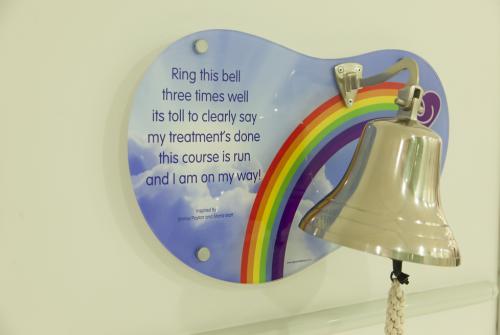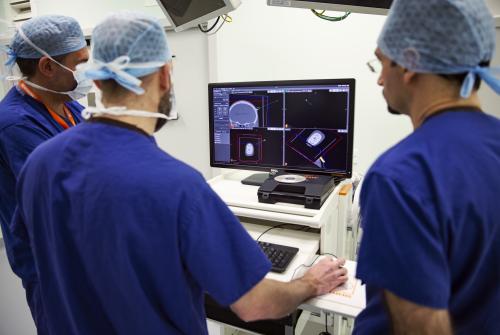Gliomas
Overview
Gliomas are one of the most common types of primary brain tumours.
Gliomas are brain tumours that start in glial cells. These are the supporting cells of the brain and the spinal cord. A glioma can affect brain function and be life-threatening depending on its location and rate of growth.
There are different types of gliomas. There are 3 types of glial cells:
- Astrocytes – tumours that start in these cells are called astrocytoma or glioblastoma
- Oligodendrocytes – tumours that start in these cells are called oligodendrogliomas
- Ependymal cells – tumours that start in these cells are called ependymomas
Astrocytomas are the most common type of glioma in both adults and children. Astrocytomas can be low grade (slow-growing) or high grade (fast-growing).
Services at GOSH
Great Ormond Street Hospital for Children (GOSH) is one of the three largest centres for children with cancer/leukaemia in the world and the largest in Europe. The Haematology and Oncology department at GOSH is uniquely set up to treat the rarest and most complex forms of paediatric cancers.
Conditions we treat
Treatment Options
Low-grade glioma: surgery, chemotherapy, radiation, targeted agents. Different treatments are used depending on tumour location, options for surgery, age of the child, and pathology. Treatment can be from 2 months to 18 months
Relapse of Low-grade glioma: Treatment modalities as above
High-grade glioma: treatment for young children under 3 will be surgery followed by chemotherapy. Treatment is 12 months. Treatment for children above 3 years is surgery followed by radiation and concomitant chemotherapy. Treatment can be up to 18 months
Relapse of High-Grade Glioma: surgery, re-irradiation, targeted treatment
Clinical outcomes
Low-grade glioma: 5-year overall survival >90%, progression-free survival 50%
High-grade glioma: 5-year overall survival 10-20% (depends on tumour grade)
Advanced treatment options at GOSH
- Surgery and intraoperative MRI
- Intensity-modulated radiation therapy (IMRT)
- Proton beam radiation
- Targeted agents
Advanced techniques for diagnosis at GOSH
GOSH provides Comprehensive Molecular profiling including:
- Methylation classification
- NGS panel sequence on the tumour
- RNA fusion panel sequencing of the tumour
Refer your child for treatment
Use the form below to refer your child for treatment. A member of our team will be in touch within 2 working days.
Mandatory fields



